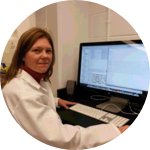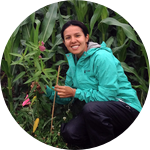About This Project
Monarch butterflies have experienced a long-term population decline. One untested hypothesis to explain this decline is non-target exposure to toxic insecticides. Specifically, neonicotinoids: a new class of insecticide applied to field crops (e.g., corn) that have lethal and sub-lethal effects on insects. I will test the consequences of neonicotinoid exposure for monarch caterpillars that consume milkweeds and thus are likely exposed to neonicotinoid residues.
Ask the Scientists
Join The DiscussionWhat is the context of this research?
A large fraction of seeds planted in most major crops (e.g., corn, soybean, canola, cotton, wheat) are now pre-coated with neonicotinoids (systemic insecticides highly effective against insects feeding on sap or leaves). They bind to receptors in the insect’s central nervous system, stimulating the nervous system at low concentrations, or creating paralysis and death at high concentrations. The problem is that neonicotinoids can contaminate adjacent natural ecosystems by dust emitted from tractors during planting and via movement in waterways to groundwater and streams. Monarch declines have temporally coincided with the increase in use of neonicotinoids throughout agricultural regions.
What is the significance of this project?
Although butterflies do not play a primary role in crop pollination, their susceptibility to landscape-level changes makes them important bio-indicators of ecosystem health. Evaluating the effect of neonicotinoids in the monarch-milkweed system will help guide restoration efforts that aim to protect monarchs and pollinators that are crucial to sustaining our agricultural ecosystem.
What are the goals of the project?
To test the effects of agricultural contamination on monarch ecology, we will tag, geo-reference, and collect milkweed leaves from plants at varying distances (0 to >100m) from corn fields and test them for residues of neonicotinoids and other agrochemicals. We will use liquid chromatography to separate, identify and quantify the chemical components in the samples. Simultaneously we will survey the milkweed-associated insect community and herbivory on sampled plants. All samples will be collected from five agricultural sites in Indiana over three sample periods in June, July, and August.
Budget
We collected milkweeds last summer and we started analyzing the plant tissue collected in June for pesticide residues. However, we still need funds to analyze our July and August milkweed samples with High Performance Liquid Chromatography (HPLC). Having pesticide residues data for three months will help us to evaluate changes in pesticide residue levels in milkweeds over the summer season. We are asking support to pay for the cost of preparing the samples for HPLC analysis and supplies such as homogenizer tubes and zirconium ceramic beads that are quite expensive.
Endorsed by
Meet the Team
Paola Olaya-Arenas
Most of my prior experience is with plant ecology, conservation and restoration in tropical forests. In 2012 I was offered a fully-funded PhD fellowship from the Colombian government (Colciencias) to study abroad, which gave me the opportunity to come to Purdue University to become involved in entomology. This opportunity opened the door to plant-insect interactions, a topic that I had not previously explored but is amazing, especially interactions among species. Once I graduate, I will return to Colombia where I plan to be a university professor or work in sustainable agriculture.
Ian Kaplan
I have been studying the ecology of insects in and around agricultural fields for the past 15 years. Much of this research has focused on conservation of beneficial insects that provide ecosystem services such as biological pest control or crop pollination. More recently, we have begun focusing on the preservation of insect biodiversity and conservation of rare species in agricultural landscapes with monarch butterflies and related taxa serving as an important model system for changes in ecosystem health.
Project Backers
- 37Backers
- 105%Funded
- $1,048Total Donations
- $28.32Average Donation



